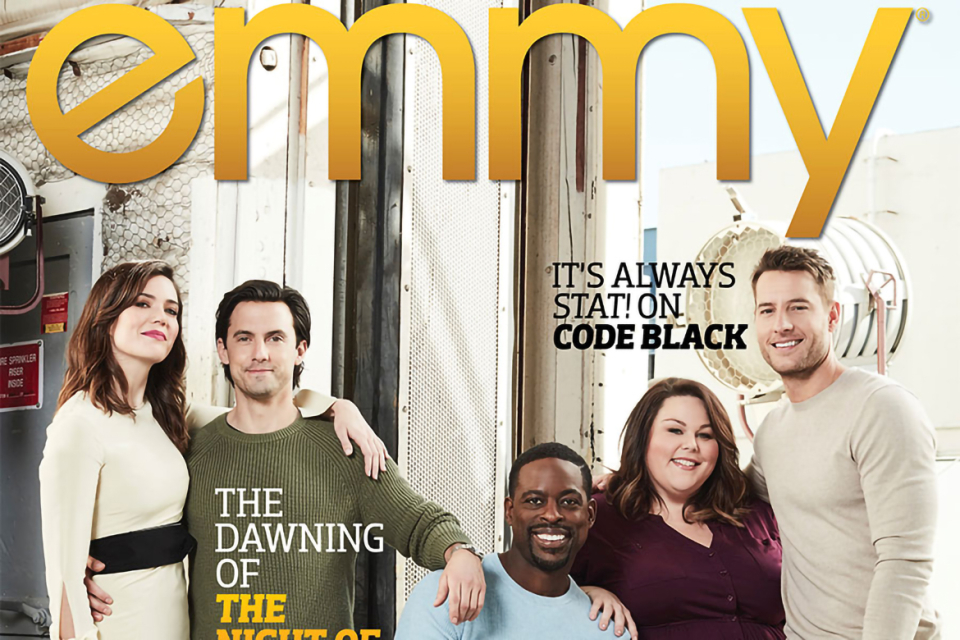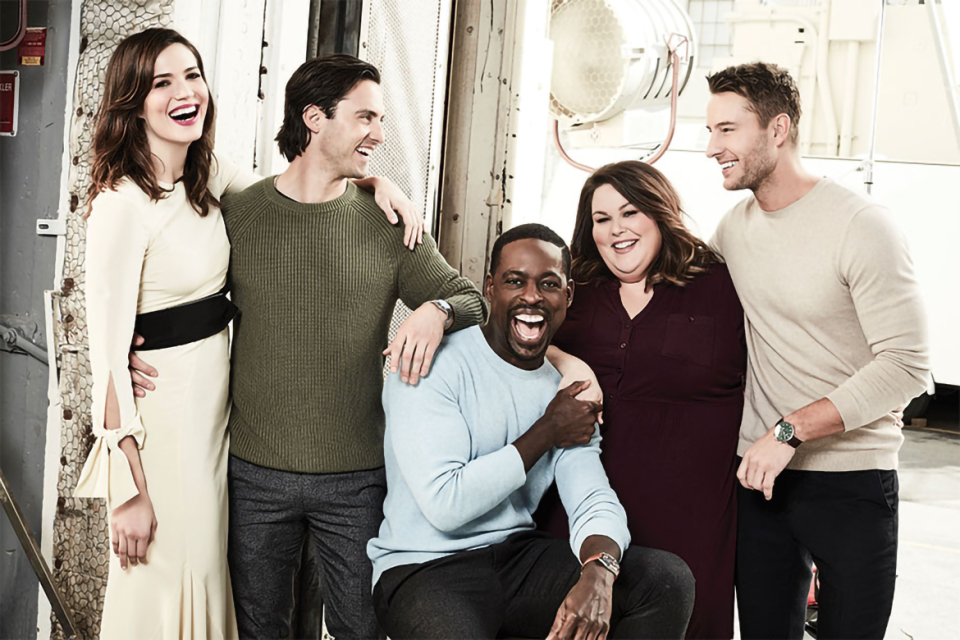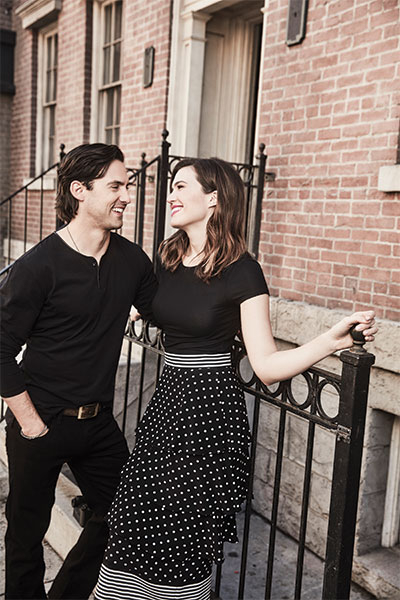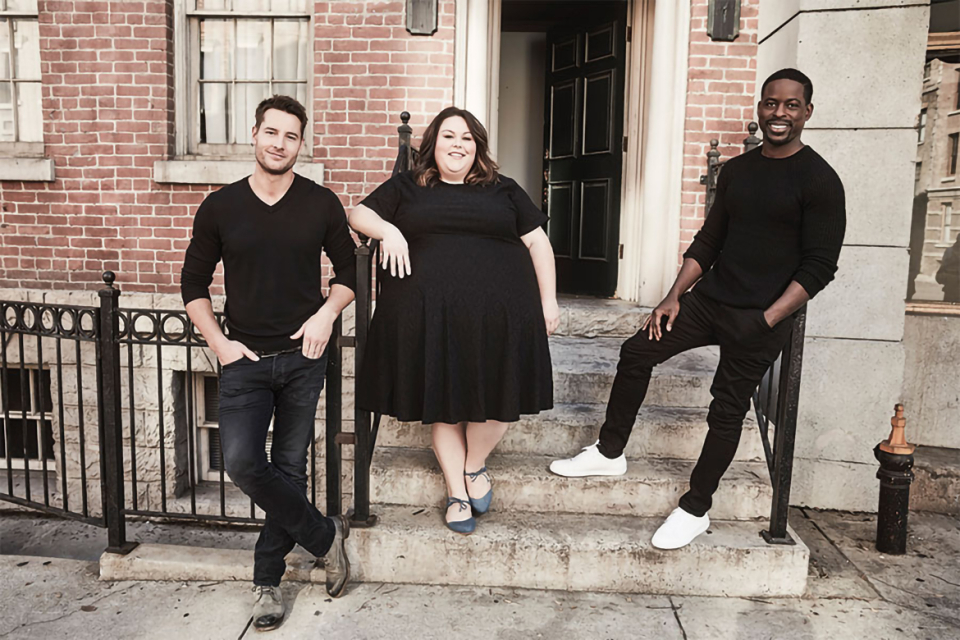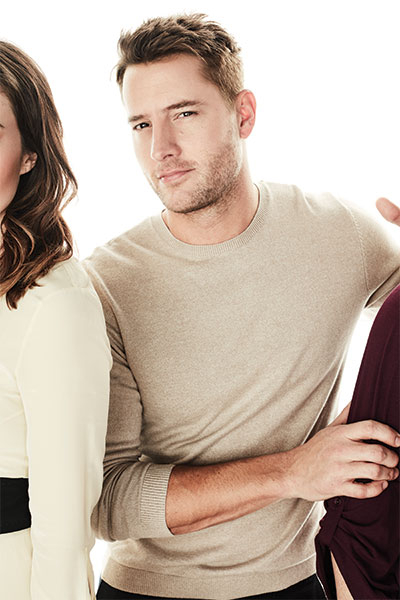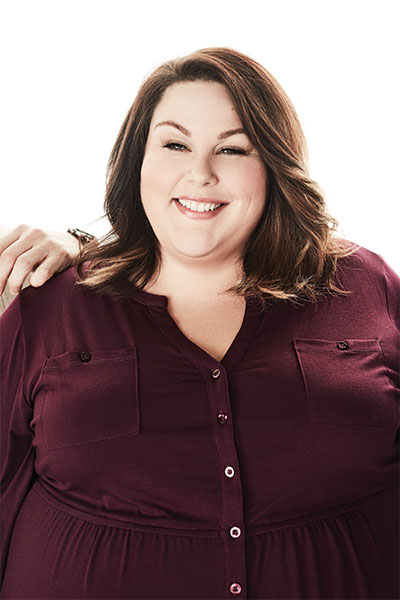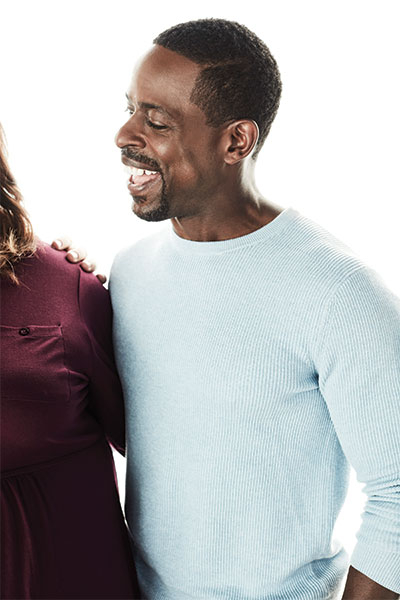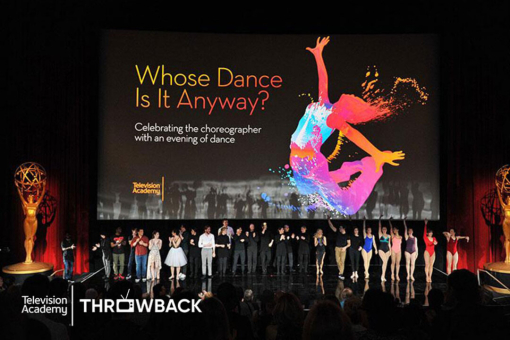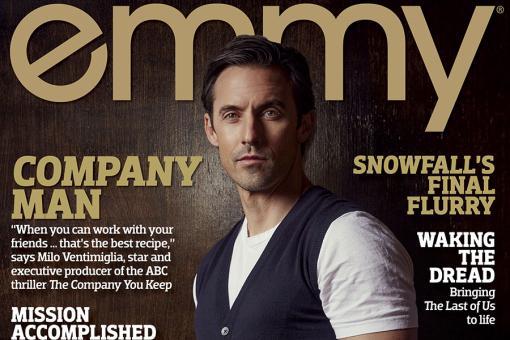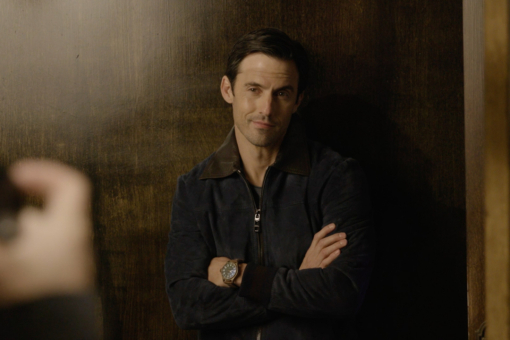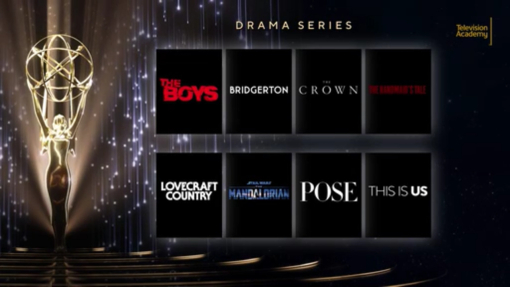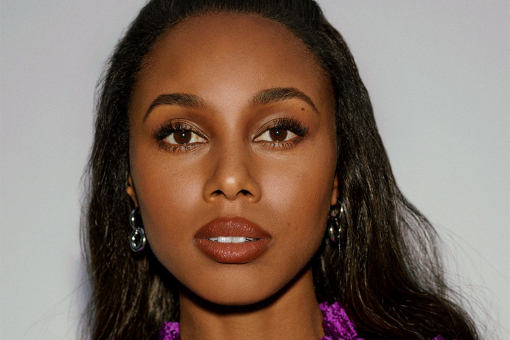“i’m never going to write a superhero movie,” confesses Dan Fogelman, sitting on the couch in his expansive office on the Paramount lot.
Against a backdrop of framed posters and memorabilia from his movies (Cars, Tangled, Danny Collins and Crazy, Stupid, Love) and past TV series (The Neighbors, Galavant), he says: “It’s just not in my wheelhouse. I’m never going to write something really dark and messed up, because it’s not my point of view.
"So if I’m going to use whatever currency I have right now, I’m going to make people laugh and hit them with something emotional — but hopefully not manipulative. That’s what I want to do until they tell me I’m not allowed to do that anymore.”
That day isn’t likely to come anytime soon. Fifteen years into an already enviable career, this mild-mannered mensch from small-town New Jersey is having a big moment.
His high-concept family drama, This Is Us — which chronicles the lives of Jack and Rebecca Pearson, a loving Pittsburgh couple, and their three kids over the course of several decades — was the year’s number-one new series among adults 18 to 49. What’s more, by its March 14 season finale, it was delivering the largest overall viewer total among all first-year shows.
On top of that, it is NBC’s first new series in nine years (since Heroes) to win a Golden Globe nomination for Best Drama. In February, Fogelman — who created the show and executive-produces it with John Requa, Glenn Ficarra, Ken Olin, Don Todd, Charlie Gogolak and Jess Rosenthal — took home a 2017 Humanitas Prize, which celebrates writing that is uplifting and life-affirming.
On June 8, the show will receive a Television Academy Honor, given to programs that create and advance social change.
But beyond its robust ratings and mounting kudos, This Is Us has become something of a cultural phenomenon. While Fogelman (who lived in Pittsburgh until he was nine) jokingly describes it as Lost meets The Waltons,“ there has really never been a show quite like it. Though Parenthood fans may feel it fills a void left by the cancellation of their favorite family drama last year, This Is Us is a different animal.
Thanks to strategic time jumps that allow the storytelling to span a 45-year continuum (1972 to 2017), it seamlessly juxtaposes passages in the characters’ lives as if they existed simultaneously. Well-placed reveals introduce slice-of-life twists that prove all the more astonishing because we never see them coming.
The show’s character-driven storytelling — about the interconnectedness of people as they cope with issues of love and loss, race and class, body image and sexuality, high hopes and broken dreams — is so human and relatable, viewers can’t help but think, “Holy crap, this is us.”
Which is why, over the course of 18 episodes, the series morphed from a runaway hit into a primetime event, a cathartic weekly forum that has women obsessed, grown men sobbing and millennials — the most tech-reliant generation ever — tuning in for same-day viewing.
Heartfelt yet often hilarious, This Is Us is something of a small miracle — an answered prayer for NBC, but also for broadcast television itself. It proves that a quality program can still break new ground on a major network without having to be dark and disturbing like so many cable shows that have ruled the airwaves since The Sopranos won its first Emmy in 1999.
In fact, the last time the procedural-heavy broadcast networks won a single Emmy nomination for Outstanding Drama Series was 2011, for the second season of CBS’s The Good Wife. That could change this year.
It doesn’t hurt that This Is Us has a dream cast of actors who are coming into their own. “My favorite part about the show is how unexpected they can be,” Fogelman says of his ensemble. “That’s the most exciting part of writing for them — letting them surprise you.”
One season in, the show has already changed the trajectory of these actors’ careers. (In an unusual show of faith, NBC rewarded them in January by renewing the show for two more seasons.)
After successful runs on Gilmore Girls and Heroes, Milo Ventimiglia is the unofficial cast captain, numero uno on the call sheet for the first time. He brings unforeseen gravitas to Jack, the working stiff who married up and — spoiler alert — died young (his scenes are all set in the past).
Mandy Moore became a pop princess at 14, later branching out into films like The Princess Diaries and A Walk to Remember. She has shown her mettle as Rebecca, the reluctant matriarch who’s seen at ages ranging from 22 to 66.
Justin Hartley had played a string of TV superheroes and soap studs, but as the Pearsons’ actor-son, Kevin, he gets to reveal unexpected depths beneath those chiseled features. Relative newcomer Chrissy Metz, who was alternately working as a talent agent and collecting unemployment before landing the role of plus-size daughter Kate, has become an endearing role model for anyone who looks different.
And Sterling K. Brown — who won a 2016 Emmy for his performance as Christopher Darden in The People v. O.J. Simpson: American Crime Story just two nights before This Is Us premiered — is a revelation as Randall. The Pearsons’ adopted son is a fish out of water in his own family; he loves his white parents but fears he’s missed something as a black man in America.
Meanwhile, the three other actors who round out the cast — Susan Kelechi Watson as Beth, Randall’s no-nonsense wife; Ron Cephas Jones as William, Randall’s biological dad; and Chris Sullivan as Toby, Kate’s beefy boyfriend — are all experienced stage actors.
Says Jones, the ensemble’s velvet-voiced veteran: “It’s the first time people recognize me when I’m walking down the streets of L.A. I couldn’t fathom that ever happening. It’s been kind of strange.”
It’s also been kind of poignant at times. “I can’t go anywhere without somebody saying something,” Metz says. “A woman told me that the show has created a dialogue between her and her daughter, who never spoke about her weight, and she started crying and I started crying. Others say, ‘Can I just hug you?’ It’s about so much more than just acting.”
And, according to Sullivan, the show’s fans aren’t just touchy-feely types: “I was wearing my This Is Us hooded sweatshirt the other morning, and a giant trucker — six feet tall with 200 pounds of neck tattoos — carrying a load of boxes into a shop, said, ‘Oh man, I saw your sweatshirt and I’m like, I gotta get one of those. And then I realized it’s you, man. I love your show.’”
Originally, Fogelman saw This Is Us as a movie. He’d just directed his first film, Danny Collins, and exited a deal at ABC Studios (where he’d created the short-lived sitcoms Galavant and The Neighbors) to sign with Fox Studios. At the time, he was consumed with a film idea about a family, “and there was going to be a reveal at the end that they were octuplets born in the late ’70s or early ’80s.”
After writing 70 or 80 pages, though, “It wasn’t feeling like a movie.” So he did something he’d never done before: he dropped the project. But his mind kept returning to those abandoned characters. And he realized that if he pared back the story and cut a few roles, he might have a TV show.
“The reason I was struggling with [the film] wasn’t the plot; it was about these characters and how I didn’t want to ‘beginning-middle- and-end’ them. I wanted to do this continuous story — which felt very much like the theme of the show.”
Within days, Fogelman had a 50-page pilot script, which he showed to executives at Fox. “It was called 36 because the three siblings were turning 36 on the day the pilot takes place,” remembers Gary Newman, co-chairman and CEO of Fox Television Group with Dana Walden. “The studio read it and just loved it, and they sent it on to the Fox network, who also loved it — but we made what was a hard decision.
“We really felt it was in the spirit of shows like Friday Night Lights and Parenthood — a rich, textured, family drama — and we felt that NBC in particular would be a great home for it.” NBC also had the Olympics and wanted to use The Voice to launch another show. “Those were persuasive things to us and to Dan.”
It was September 2015, early for pilot season, which meant Fogelman’s already-completed script was just about the only game in town. Jennifer Salke, president of NBC Entertainment, recalls hearing about it first from trusted friends at Fox, where she’d worked for 10 years prior to moving to NBCUniversal. Walden called to say they had something special for her to read.
“I had a pretty strong idea that it would be a great script,” Salke recalls. “What I didn’t know was that it was going to have this incredibly emotional pull. It was different than just [reading] absorbing creative material. It took it to this other level. Everyone [on my team] was emailing each other [that night]. That doesn’t happen. There was this collective fervor that we [had] to have this project.”
Salke says she’s only witnessed this kind of passion for pilot scripts twice before — with Glee and Modern Family. And she knew NBC needed a big hit. The network was on the comeback trail with The Blacklist and Dick Wolf’s Chicago-based procedurals. “But we needed a big statement show,” she says, “something that would break through culturally.”
By then, Fogelman had re-teamed with Glenn Ficarra and John Requa, the duo who directed Crazy, Stupid, Love. They also had a deal at Fox. Together, they met with Salke, who agreed to let them make the pilot they wanted. Because they already had a script, actors were willing to audition. And because it was still early, they were able to snag their first choices.
“I hadn’t written it for anyone,” Fogelman says, though having worked with Moore on Disney’s 2010 animated hit, Tangled, he says she was “one person I brought up very quickly. Mandy is the most winning human being in the world, but she’s hard-core in this show.
John and Glenn had Sterling in their film with Tina Fey [Whiskey Tango Foxtrot] and said he’d make a great Randall. He’s such a powerhouse dramatic actor, but he’s capable of nailing a monster joke.
Chris Sullivan is a heavy-duty serious actor who just happens to be the funniest guy in the world. Every single cast member was kind of undeniable in audition.”
“We had the pick of the litter,” Ficarra recalls. He knew their luck had paid off when the show started airing last September, and his parents and their friends couldn’t stop talking about it.
“I thought, ‘Wow, this is bigger than I’m used to.’” But he didn’t realize how much bigger it was until “Milo shaved off his mustache [for the season finale] and my entire news feed was filled with him. And I thought, ‘Well, we’re a hit.’”
In the fifth episode of This Is Us, Justin Hartley delivers a meaning-of-life speech that reveals his sensitive side — and also defines the show. As Kevin, the hunky sitcom star who wants to be taken seriously, he confides to his two nieces that whenever he reads a script, he creates a painting that expresses how it makes him feel.
He shows them a Jackson Pollock–like painting he’s made and says, “What if we’re all in the painting, everywhere? What if we’re in the painting before we’re born? What if we’re in it after we die? And these colors that we keep adding, what if they keep getting added on top of one another until eventually we’re not even different colors anymore? We’re just one thing, one painting.”
He maintains that though his father, Jack, is dead, he’s with him every day. “Just because someone dies, just because you can’t see them or talk to them anymore, it doesn’t mean they’re not still in the painting. I think maybe that’s the point of the whole thing. There’s no dying, there’s no you, or me, or them. It’s just us. And this sloppy, wild, colorful, magical thing that has no beginning, it has no end, it’s right here. I think it’s us.”
This scene inspired the title of the series, Fogelman says. And while he confirms that the character of Kate was modeled on his sister, a late bloomer who has struggled with her weight, much of his recent work is powered by the death of their mother eight years ago.
“I’ve had this very blessed run in the entertainment industry,” says the producer, who got his first break at 25. “But through much of it, my mom, who is this key figure in my life and was the coolest person, has not been there.”
Two years ago, he married actress Caitlin Thompson. And not long ago, his sister had a child. But his mom wasn’t around to share any of it. “So [I’ve been] trying to find something that is not religious in nature but says, ‘Hey, here is the wider view of the whole thing and she’s still very much in the painting.’ That is probably something I’m chasing.”
Fogelman’s mother, Joyce, was the basis for Barbra Streisand’s character, also named Joyce, in 2012’s The Guilt Trip, which Fogelman based on a road trip he and his mom took to Las Vegas.
When he created This Is Us, he maintains, “I never once — consciously — thought of my mom when writing Rebecca. But there are moments when I’m in the edit bay that I see so much of my mom in Mandy that it makes the hair on my arm stand up.
"My mom was beautiful and carried a big load in her household, but there was also a slight sadness to her that I always found quite mysterious, even though I knew everything about her. And there’s a lot in the Randall-Rebecca relationship that rings very true for me, personally.”
Executive producer Ken Olin moved back to L.A. from New York just to work on This Is Us, and he directed three episodes of season one. Olin has watched Fogelman channel these pains throughout the season.
“There’s something truly savant-like about Dan,” he says. “He has a very strong point of view and a very deep well creatively, but he is modest in person and there’s some way that he absorbs things and they’re very truthful.”
Which makes the series’ existential meanderings all the more meaningful.
Ventimiglia says: “I think there’s a lesson of heritage and history in knowing where we come from and where generations later are going to be. When I walk around and lock eyes with someone, I smile. I always have. It’s just a good rule of thumb — just be kind. And the show goes back to that — it’s inherently good. So [one should] put the effort forward to have a good life.
"Fogelman has created something that is hopeful and good without being navel-gazing.”
Sullivan takes it a step further: “I describe the show as an ensemble of characters who are identifying the sources of shame in their lives and are navigating through that shame by connecting with the people that they love. Whether [dealing with] adoption or weight loss or drinking or drug use or homosexuality, the only way to get through all that is to be honest about it, to face it.
"And the people most likely to help you through it are the people you love.”
Fogelman may not be religious, but it’s his big-picture view of life that separates This Is Us from previous domestic dramas. The Waltons, Little House on the Prairie, Family, Life Goes On, Picket Fences, My So-Called Life, Party of Five, Once & Again, The Sopranos, Six Feet Under, Friday Night Lights, Big Love, Brothers and Sisters, Parenthood, you name it — none has offered such a profound mix of humanity and humor.
That’s pure Fogelman. He also co-created this past season’s underrated Fox drama Pitch, about the first female major leaguer. That show — which did not get a season-two pickup — also played with time as a storytelling device, and its pilot ended with a similar life-and-death twist.
Even in Fogelman’s comedic drama Crazy, Stupid, Love, the fun lay in discovering that the main characters were interconnected.
Says Olin: “It’s important to me that [the show] feel truthful and be the most mature version of something, as opposed to the most histrionic or sentimental. And I know that’s true for Dan. He wants [us] to walk away believing that [life] is difficult, and people behave badly and have shortcomings, and sometimes things are really hard or don’t work out, but ultimately there is the possibility for good things and love to happen.”
Hartley saw his share of sudsy storylines as an actor on The Young and the Restless, Mistresses and Revenge. What separates This Is Us from melodrama, he says, is the execution. “In soap [opera], you take a real moment and you heighten the shit out of it. Our show is more grounded. It lives right here. You don’t have to elevate it.”
It’s 1996 on Stage 32 at paramount, where Citizen Kane and Chinatown were once shot. You can tell what year it is because Ventimiglia sports a ’90s goatee and Jack appears to be drinking again. Writer- producer Vera Herbert, who cowrote the week’s episode (and picked up a Writers Guild Award for a previous one), stops and introduces herself. So does Roxanne Olin, Ken’s daughter, who’s working as an assistant.
A few days later, on nearby Stage 31 (where Top Hat was shot in 1935), it’s back to the present as the entire Pearson clan gathers in Randall’s plush living room to shoot a highly charged scene. Susan Kelechi Watson has everyone tearing up. A crewmember clears a place in the cluttered dining-room set from which to observe on a monitor and he actually says, “Welcome.”
Meanwhile, between set-ups, director Wendey Stanzler comes by to say hello, offering churros. This is not the typical Hollywood set. Like the series itself, the vibe here is unusually genial, as if everyone is proud to be participating in something special. “It’s a real gift to be part of this,” Stanzler says.
There’s no doubt that Fogelman sets the amiable tone, on camera and off. Olin, the thirtysomething star who more recently executive-produced the ABC family saga Brothers and Sisters, says Fogelman’s vision is what gives This Is Us consistency and makes it work: “This show has had one voice from the beginning.”
Given the age and angst of the characters, it’s tempting to call This Is Us the thirtysomething of its day. “There’s something about that period in people’s lives when they’re not kids but everything is still ahead of them, and so they’re all dealing with the same issues of uncertainty and insecurity and ambition,” Olin observes.
“Yet [This Is Us] is much broader in scope.” Thirtysomething — which Fogelman likes to remind Olin he’s never watched — was about “seven white people with relatively the same body-fat percentage. This group is very different. This Is Us doesn’t have the same kind of self-absorption. Thirtysomething did not transcend its time. And it never wanted to. Somehow Dan has been able to do that.”
Beyond all of Fogelman’s best efforts, though, This Is Us has also benefited from something no one could have planned — it’s the right series at the right time.
Since the fall, political satire has boosted ratings for Saturday Night Live, The Late Show with Stephen Colbert and other programs that provide outlets for post-election tensions. This Is Us may not indulge in social commentary, but what it does offer is perhaps a more lasting salve: the notion that in the world according to Fogelman, what’s right ultimately prevails.
“I don’t know whether This Is Us would have been the same kind of success at a time when people felt safer,” Olin says. “I think there’s a great need for a humanist sensibility and a voice for hope. And not schmaltzy hope. [This Is Us] is saying that we can see life for as difficult and sad as it can be at times and still find decency, honor and truth.”
With the first season wrapped, the cast is increasingly aware of the sense of purpose that surrounds the show. Just before leaving for Vancouver to star in a reboot of Predator, Brown describes the many kinds of people who have approached him to say how much they connect with this show about human connection:
“There will be black men my age who are very thankful for the representation, older people, younger people, gay, straight, transgender,” he says, noting that he’s having “conversations across the board, talking about how this show is something special, that it’s entertainment and edification, but it’s also healing in a very beautiful way at a time in our country when things seem incredibly divisive.
"I feel like everybody — Democrats, Republicans, liberals, conservatives, what have you — can enjoy the subject.”
Fogelman, who’s been in Spain directing a film with another understated title — Life Itself — remains characteristically philosophical: “Hopefully, what people are attaching to is this common experience we’re all sharing that is different right now with our crazy politics.”
He pauses for a moment, then adds: “As divided as the world is, the human experience doesn’t change that much.”
Go behind the scenes of emmy ’s cover shoot with the cast of This Is Us. Visit TelevisionAcademy.com/cover.
This article originally appeared in emmy magazine, Issue No. 5, 2017

